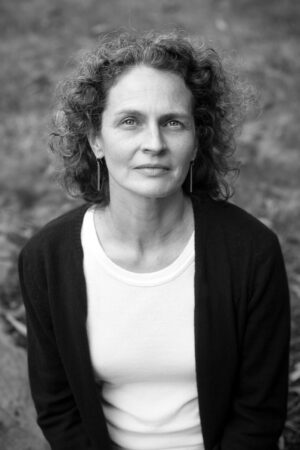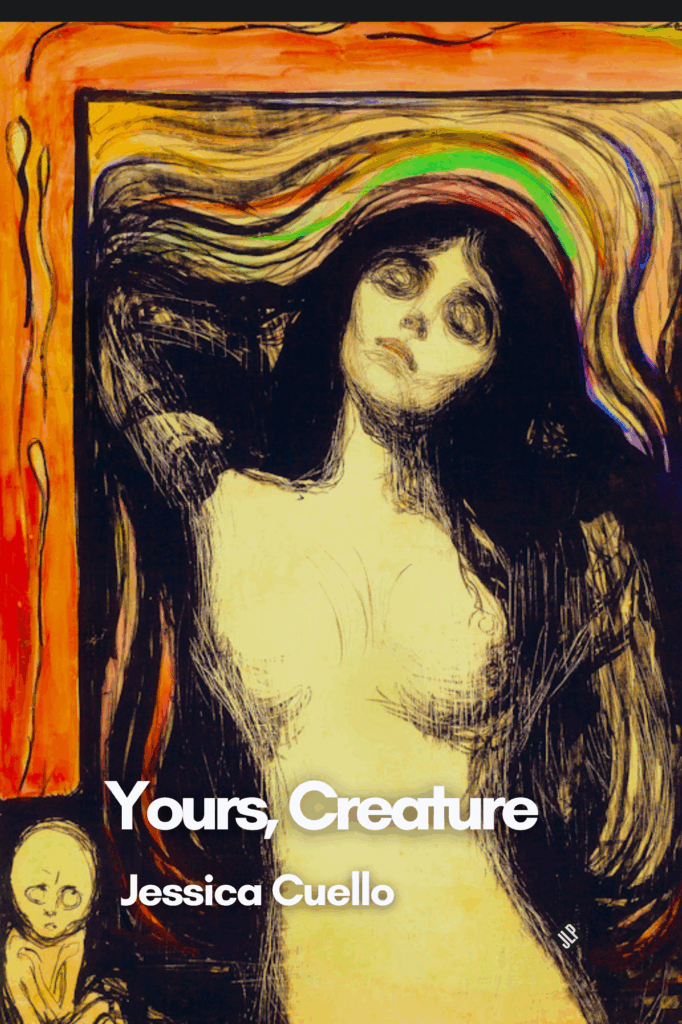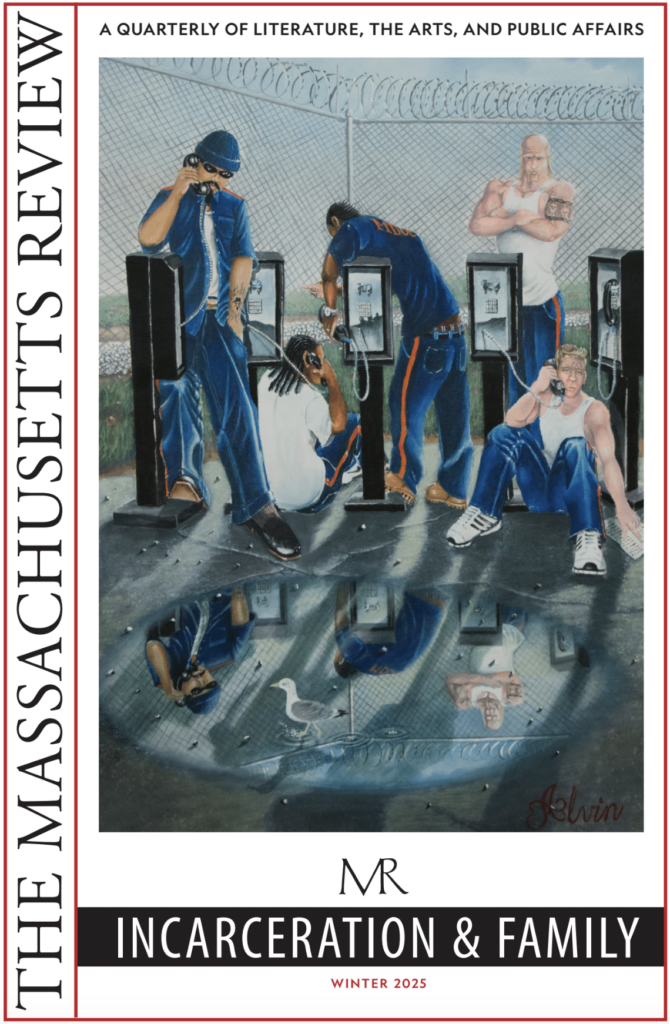10 Questions for Jessica Cuello

I could not bless. I could not bleed.
My body was hers from first to
last. To not say bruise or burnt
and when the neighbor lay me
down and unbuttoned me one
by one, I did not pray.
I did not ask or say.
—from Jessica Cuello’s “My Mother’s Daughter,” Volume 65, Issue 3 (Fall 2024)
Tell us about one of the first pieces you wrote.
One of the first pieces I wrote was entitled “Quacker Duck.” It was the story of a duck who sold “quackers” but no one bought them. He was lonely and fled to the country where he met an old lady and moved in with her. It had illustrations and a copyright. I was seven.
What writer(s) or works have influenced the way you write now?
Lucie Brock-Broido, Shane McCrae, C.D. Wright, Jean Valentine, Marie Howe, Mahmoud Darwish, Wisława Symborska, Brigid Pegeen Kelly, and Anne Carson were all people I considered teachers without ever having met them. Marian Haddad was the first poet to believe in me. Philip Metres, who was briefly my teacher, gave me confidence to ask for things and participate in the poetry community. How did affirmation influence my writing, you might wonder? When I was writing alone, my poems were weaker. They began to make real leaps once I felt they could belong to and exist alongside others. I was kind of delayed in this understanding.
Jane Springer is always influencing the way I write and think.
Anne Boyer’s Garments Against Women, Airea D. Matthews’ Bread and Circus, Natalie Diaz’s My Brother Was an Aztec, poets Diane Seuss, Aracelis Girmay, Vievee Francis, and Laura Kasischke are poets whose books changed how I wrote. Their work led me closer to myself.
What other professions have you worked in?
I’ve been a teacher since I was twenty-two (29 years), but I’ve also been a standardized test scorer (hell), a florist, a nanny, a waitress, a secretary, and a library page.
What did you want to be when you were young?
I wanted to be a dancer. I also wanted to be Marie Curie.
What inspired you to write this piece?
Memory and its unreliability. A pair of pants that haunted me for years. My mom bought them at The Salvation Army and they were difficult to get on and off. It was never clear whether the front was the back or vice versa. I wore them backward in second grade and I was made fun of all day. The darker part of the poem is abuse, neglect, and trying not to exist as a person in order to please others. The poem ruminates on another girl, the girl who first owned the donated pants, and wonders what it means to be a girl who grows fully, takes up space, and enters the normal developmental stages of puberty. Several poems in my new manuscript are obsessed with those who have enough so they are able to give things away…with ideas of plenty and generosity. I have often approached life from a sense of scarcity. This is terrible for a poet.
Buried deep in the poem is a belief I haven’t fully explored: the idea that the body will repress its own maturation as an adaptation.
Is there a city or place, real or imagined, that influences your writing?
Geneva, NY where I was born and lived for twelve years. It’s now a posh college town, but when I lived there in the early seventies it was economically depressed. It had more bars per capita than any other town in NY. We moved six times within Geneva and beginning at age five I spent a lot of childhood wandering alone through the neighborhoods. The houses are imprinted in my memory. The schools were not great though I lovingly remember a handful of teachers. There is enough material there for a lifetime of writing. I hope I live a long time.
Do you have any rituals or traditions that you do in order to write?
I have numerous rituals throughout the day so it’s funny that I do not have rituals connected to writing. I guess I still view time spent writing as time that is stolen secretly, that must fit wherever it can into my working life and family responsibilities.

If you could work in another art form what would it be?
When I was young I desperately wanted to be a dancer. I took out every book from the library on ballet. In our small town there was only one dance studio and my mom thought it was unhealthy for girls. She was probably right. My husband says I’d have been a miserable dancer. Probably, I’d have been elitist and self-destructive. I also dance on the off-beat, so there’s that. When we moved to Syracuse my mom said I could finally take dance if I wanted, but I said it was too late as an eighth grader to be a famous ballerina so I joined the track team and that changed my life.
What are you working on currently?
I recently completed my fifth poetry manuscript, FERAL. It may be my last book of poetry for awhile, maybe forever. I am currently working on a series of lyrical essays about my twenty-nine years as a public school teacher. They intersect with my own experience of childhood and what it means to learn, teach, and be a child.
What are you reading right now?
I am currently rereading Proust in French and during the day I have been reading the Lydia Davis translation of Swann’s Way which is magnificent. Proust before bed has become a ritual. It helps me sleep peacefully. I usually have a book of nonfiction going in one spot and a book of poetry in another. I recently finished George Saunders’ A Swim in the Pond in the Rain, which is probably one of the most beautiful nonfiction books I’ve ever read.
JESSICA CUELLO’s most recent book is Yours, Creature (JackLeg Press). Her book Liar, selected by Dorianne Laux for The 2020 Barrow Street Book Prize, was honored with The Eugene Nassar Prize, The CNY Book Award, and a finalist nod for The Housatonic Book Award. Cuello is also the author of Hunt (The Word Works,) and Pricking (Tiger Bark Press). Cuello has been awarded The 2022 Nina Riggs Poetry Prize, two CNY Book Awards, The 2016 Wash-ington Prize, The New Letters Poetry Prize, a Saltonstall Fellowship, and The New Ohio Review Poetry Prize. She is poetry editor at Tahoma Literary Review and teaches French in CNY.



